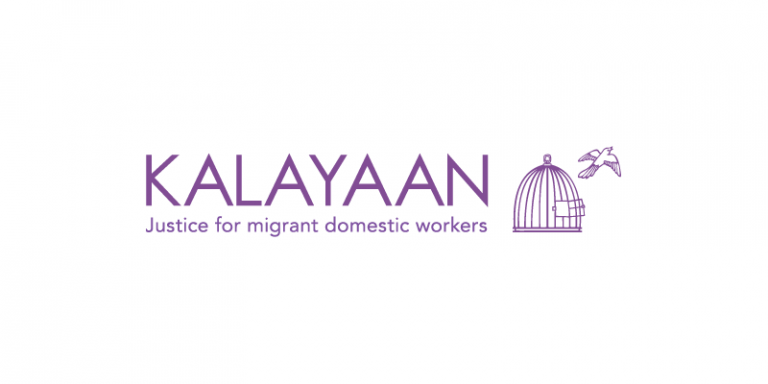Migrant Domestic Workers report published by Kalayaan with Natalie Sedacca and Virginia Mantouvalou
14 October 2019
A report on Migrant Domestic Workers has been released today, prepared by Kalayaan with Natalie Sedacca and Virginia Mantouvalou of UCL Laws.

Today sees the release of the report ‘Dignity, Not Destitution: The Impact of Differential Rights to Work for Migrant Domestic Workers’ by the migrant domestic worker charity Kalayaan. This report was co-authored by Natalie Sedacca, PhD Candidate and Teaching Fellow at UCL Laws with Avril Sharp of Kalayaan, and supervised by Professor Virginia Mantouvalou, Professor of Human Rights and Labour Law at UCL Laws.
The report presents the detailed findings of a qualitative empirical study about the impact of restrictions on the right to work on migrant domestic workers in the UK, a vulnerable group who often endure abusive and exploitative working conditions. It draws on interviews with 21 Filipino migrant domestic workers who had been identified as potential victims of human trafficking / modern slavery, of whom 11 had permission to work while waiting for a final decision on their status and the other 10 did not. The report found a number of serious problems for those denied permission to work and makes recommendations on this basis, including that all migrant domestic workers in this position should be granted permission to work.
Natalie Sedacca was closely involved in the report’s preparation, carrying out out all the interviews with the domestic workers and subsequently working jointly with Avril Sharp from Kalayaan to prepare the report, as well as co-writing this blog post on its main findings. Virginia Mantouvalou, who is a trustee for Kalayaan, supervised the design of the research and preparation of the report. She has also written previously on the problems of the visa schemes available to migrant domestic workers in the UK – see this article and this blog post.
The report carries a foreword by Jess Philips MP; other MPs will be asked to act as co-signatories before the report is sent to the Immigration Minister with an open letter introducing it. Natalie and Virginia are happy to see the report published and hope that it will have an impact on policymakers in the UK, going some way to address the dire situation faced by many migrant domestic workers in this country.
 Close
Close

